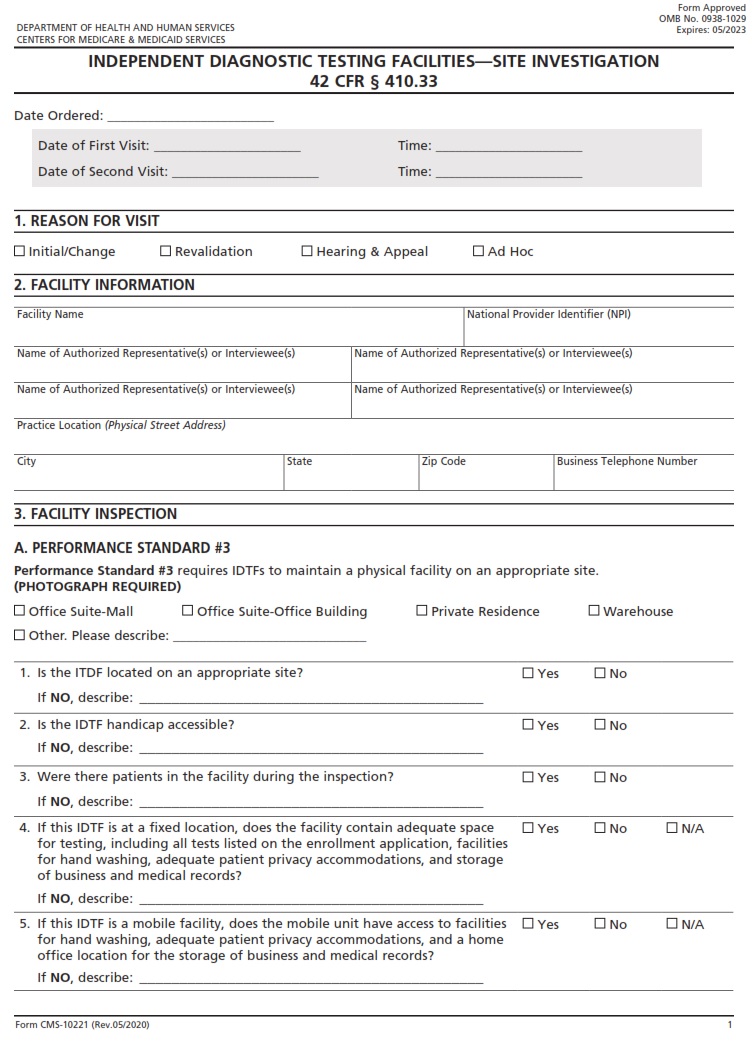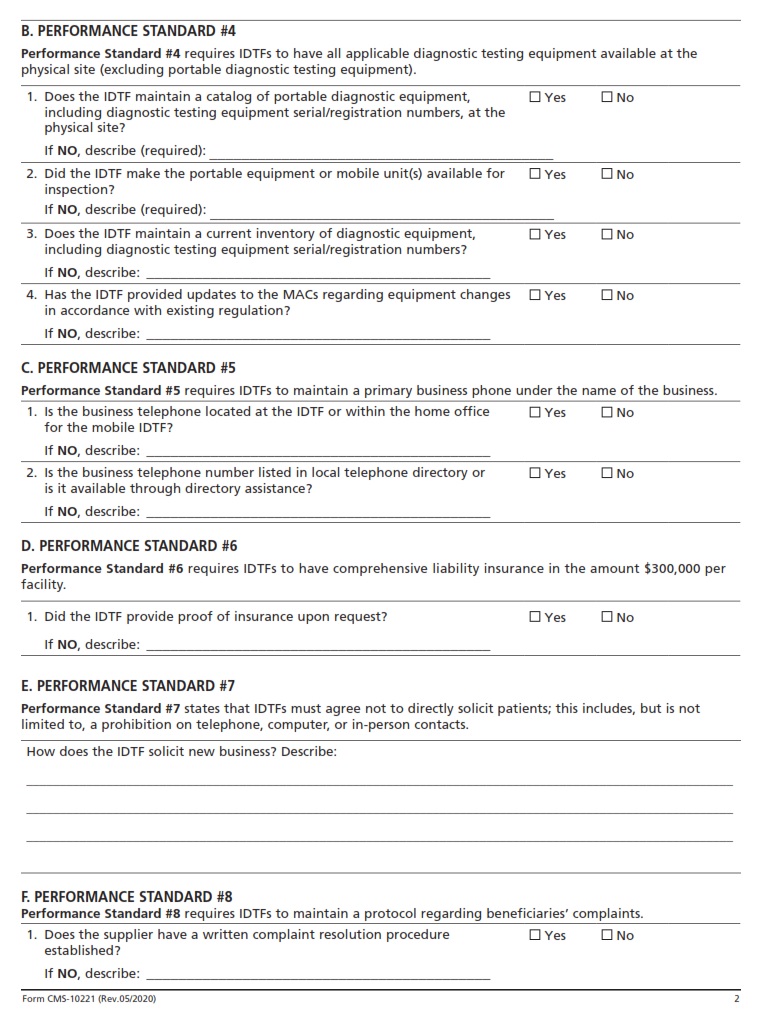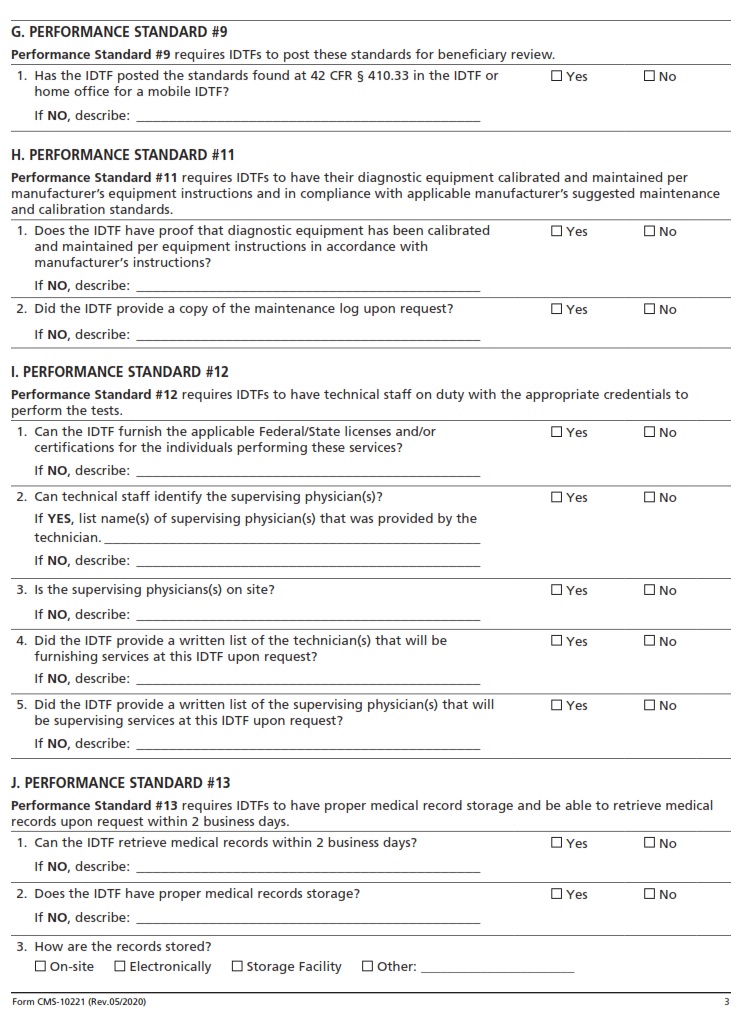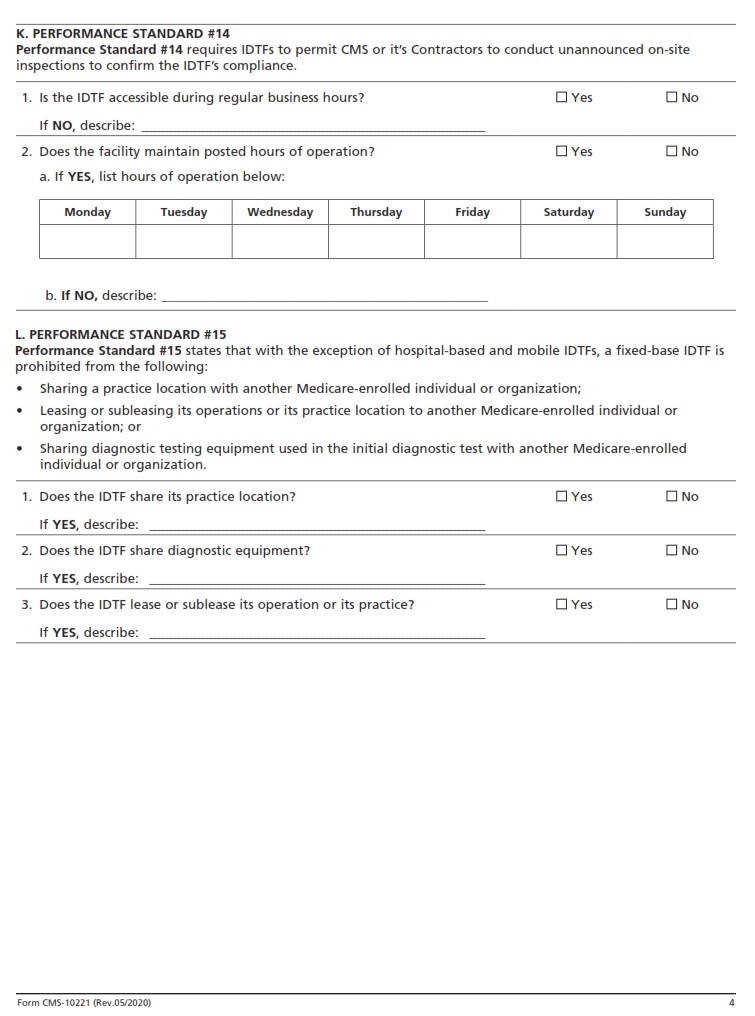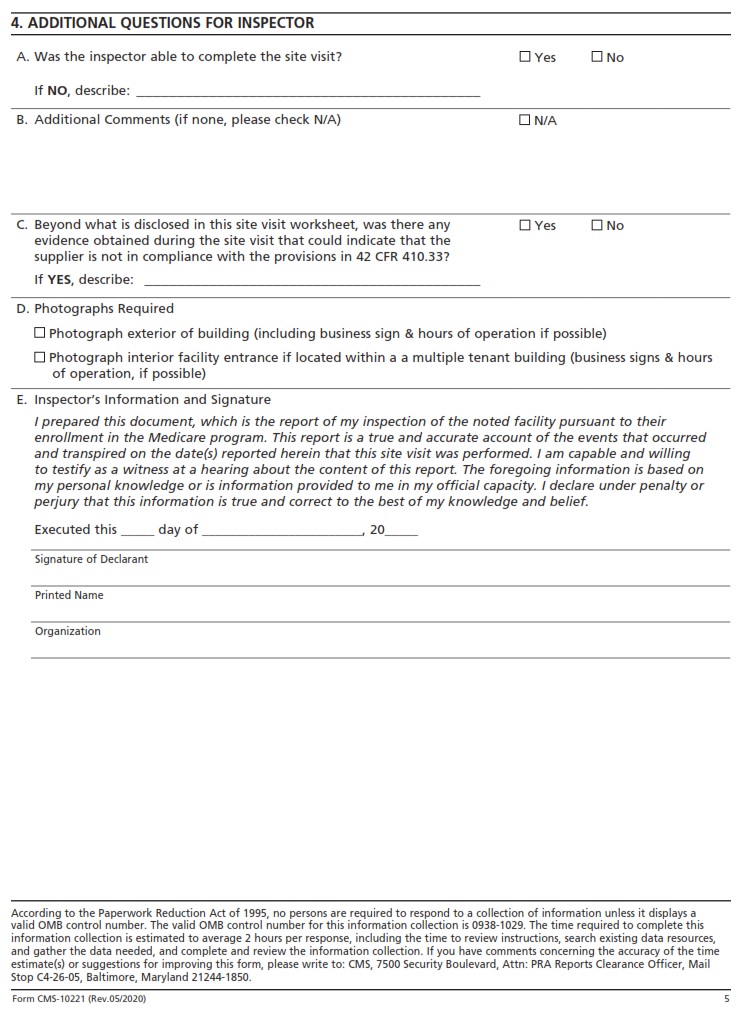CMSFORM.ORG – CMS 10221 – Independent Diagnostic Testing Facilities-Site Investigation – Have you ever wondered what goes on behind the scenes at Independent Diagnostic Testing Facilities (IDTFs)? CMS 10221 sheds light on the intricate process of site investigation that plays a crucial role in ensuring the quality and accuracy of diagnostic testing. Picture this: a team of investigators meticulously combing through every detail of an IDTF, scrutinizing equipment, protocols, and documentation with a fine-toothed comb. This article delves into the nitty-gritty of CMS 10221 regulations, uncovering the challenges and complexities faced by these facilities as they strive to meet rigorous standards set forth by Medicare. Join us on a journey behind closed doors as we unravel the secrets of IDTF site investigations and explore how they impact patient care and healthcare compliance.
Download CMS 10221 – Independent Diagnostic Testing Facilities-Site Investigation
| Form Number | CMS 10221 |
| Form Title | Independent Diagnostic Testing Facilities-Site Investigation |
| Published | 2020-05-01 |
| O.M.B. | 0938-1029 |
| File Size | 186 KB |
What is a CMS 10221?
CMS 10221, also known as the Independent Diagnostic Testing Facilities-Site Investigation, is a crucial set of regulations established by the Centers for Medicare & Medicaid Services (CMS) to ensure the quality and integrity of diagnostic testing facilities. These guidelines cover a wide range of aspects, including facility cleanliness, equipment maintenance, staff qualifications, and patient safety protocols. Compliance with CMS 10221 is essential for healthcare facilities to maintain their accreditation and ensure high standards of service delivery.
One key aspect of CMS 10221 is its focus on patient-centric care and safety. The regulations outline specific requirements for ensuring that patients are provided with a safe and comfortable environment during diagnostic testing procedures. Additionally, CMS 10221 emphasizes the importance of maintaining accurate records and documentation to track patient outcomes and facilitate continuous quality improvement initiatives within diagnostic testing facilities. Overall, adherence to these guidelines not only ensures regulatory compliance but also enhances patient trust in healthcare institutions and promotes better health outcomes for individuals undergoing diagnostic testing procedures.
Where Can I Find a CMS 10221?
When searching for a CMS 10221, it’s crucial to look in the right places. Independent Diagnostic Testing Facilities (IDTFs) are often the primary locations where these specific CMS forms can be found. These facilities play a critical role in providing diagnostic services to patients and maintaining high standards of healthcare delivery. By contacting IDTFs directly or reaching out to relevant healthcare organizations, individuals seeking CMS 10221 forms are more likely to obtain accurate and up-to-date information.
Additionally, exploring online resources and government websites can also yield valuable results when searching for CMS 10221 forms. Government portals such as the Centers for Medicare & Medicaid Services website may offer downloadable versions of the form, making it easier for individuals to access and utilize them. Furthermore, staying informed about any updates or changes in regulations regarding CMS forms is essential for ensuring compliance with healthcare protocols and procedures.
CMS 10221 – Independent Diagnostic Testing Facilities-Site Investigation
The CMS 10221 regulation plays a crucial role in ensuring the quality and integrity of independent diagnostic testing facilities (IDTFs) through rigorous site investigations. These site investigations are designed to assess various aspects of an IDTF’s operations, including equipment maintenance, staff qualifications, and compliance with regulatory standards. By conducting thorough site investigations, CMS aims to uphold the highest standards of patient care and safety within IDTFs.
One key aspect of the CMS 10221 regulation is its focus on preventing fraud and abuse within IDTFs. Through detailed site investigations, CMS can identify any red flags or irregularities that may indicate fraudulent practices such as overbilling or providing unnecessary tests. This proactive approach not only protects patients from potential harm but also helps safeguard the integrity of the healthcare system as a whole.
Overall, the strict requirements outlined in CMS 10221 underscore the importance of accountability and transparency within IDTFs. By holding these facilities to a high standard through comprehensive site investigations, CMS is working towards ensuring that patients receive accurate diagnoses and appropriate treatment without being subjected to unnecessary tests or procedures. The ongoing efforts to enforce these regulations reflect a commitment to promoting quality care and ethical practices in healthcare settings across the board.
